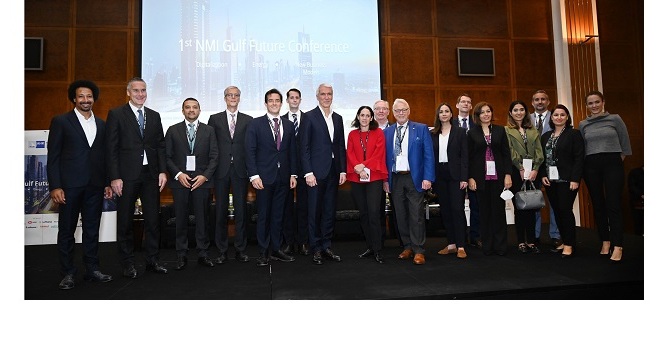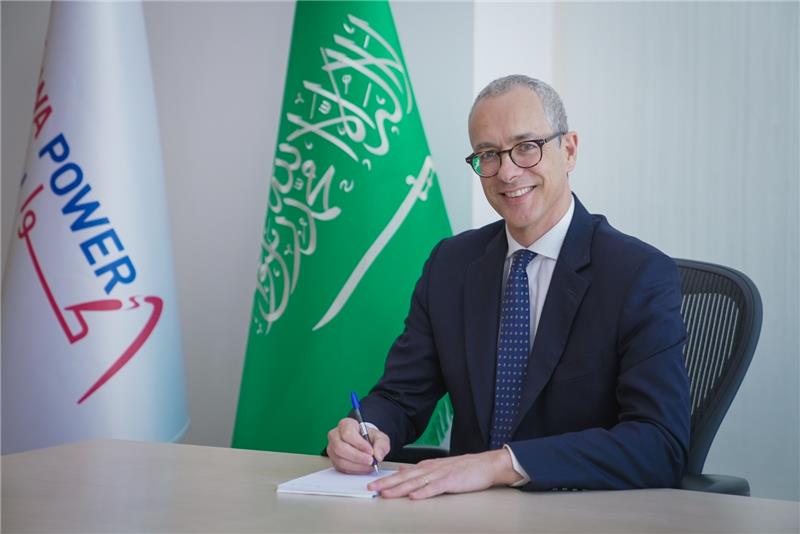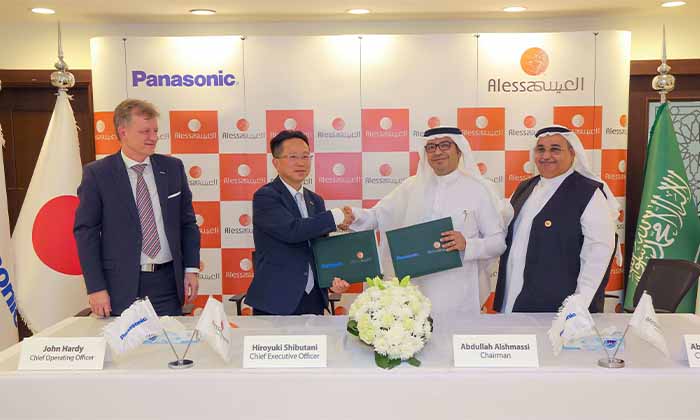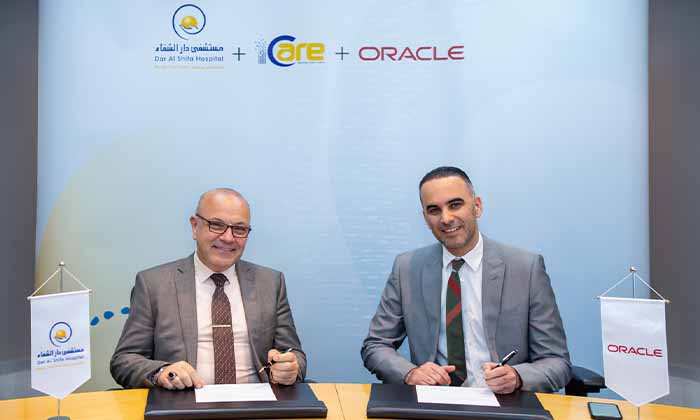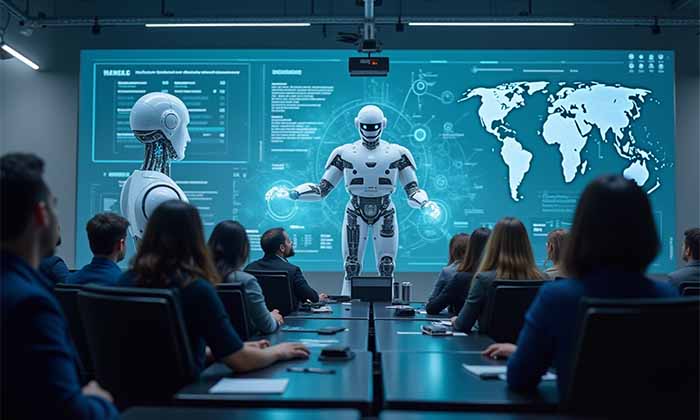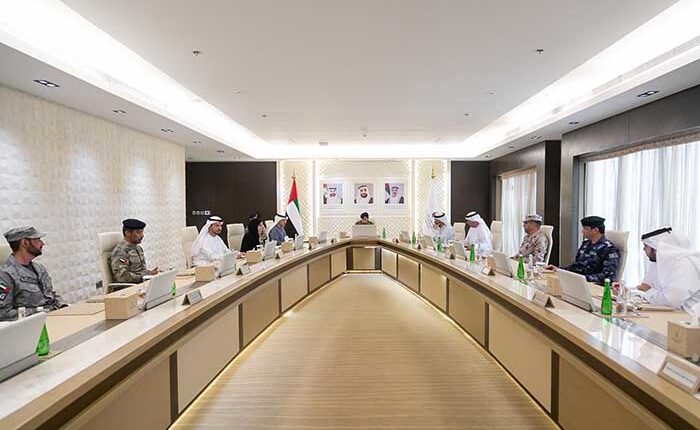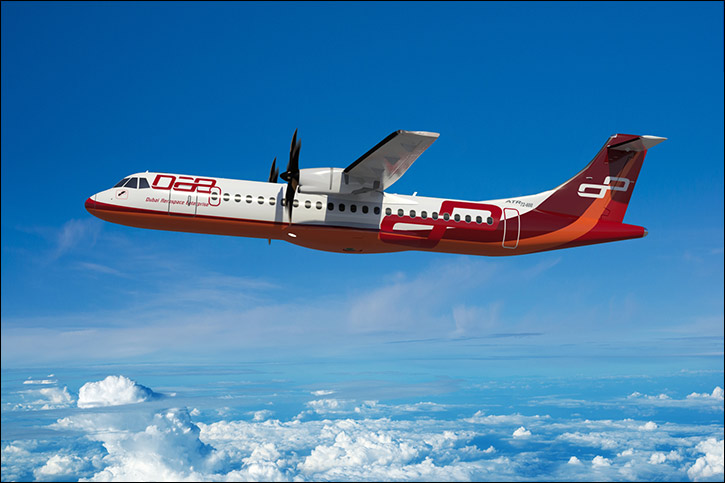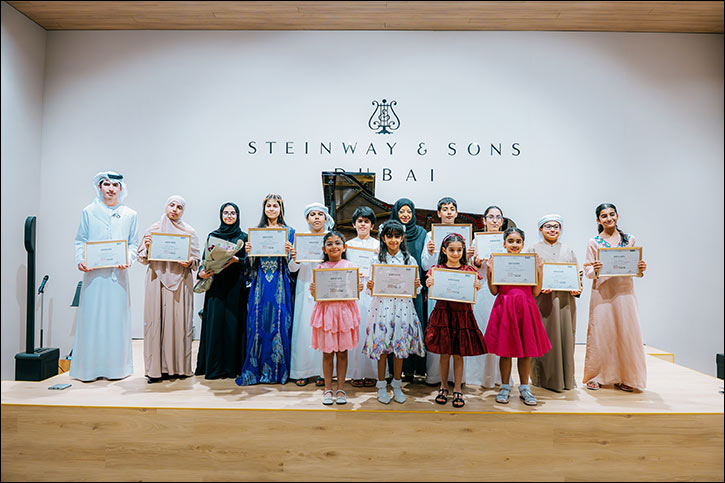H.E. Sarah Bint Yousif Al Amiri, UAE Minister of State for Advanced Technology
delivers keynote address at biannual meet
- H.E. Peter Fischer, Ambassador of Germany to the UAE talks about UAE-Germany relations and business opportunities
- Conference gathers top government leaders and corporate executives to chart future of German firms in the region
German companies are optimistic about their growth prospects in the Gulf region, as key government leaders and business executives from Germany and the GCC countries attended a top-level conference in Dubai recently.
With a combined population of about 55 million and a total GDP of more than USD $1.65 trillion, the GCC offers tremendous potential for German companies, delegates of the Gulf Future Conference held at the Jumeirah Emirates Towers were told in the presence of H.E. Sarah Bint Yousif Al Amiri, UAE Minister of State for Advanced Technology who discussed economic and trade opportunities during her speech at the opening session of the biannual meet.
“For the German economy, the United Arab Emirates and the rest of the GCC are not only important markets, but enormous partners in this part of the world – a relationship that goes beyond trade. Together with their local partner companies, German firms work together deep into the value chain – for example in the areas of research and innovation, the energy transition or digitalization,” said Ralf Wintergerst, Chairman of the North Africa Middle East Initiative of German Business, NMI, an organization dedicated to fostering bilateral business ties between Germany and the MENA region.
According to Wintergerst, who also sits as Group CEO and Chairman of the Management Board of Giesecke+Devrient, German companies must be enabled to operate freely in the MENA region and to successfully engage in business on an equal footing with partners and competitors. “Against the backdrop of pandemic-related production losses, nearshoring of supply and value chains is one of the current strategic considerations of many companies. Due to their geographical proximity, countries in the MENA region can benefit from this and thus advance their industrialization. In order for German companies to relocate individual production steps or entire productions, they need suitable framework conditions and financial incentives,” he added.
German companies are looking to the GCC market for growth in the future. With an export volume of USD$18.4 billion in 2020, the region is the seventh largest export destination for German industry outside Europe. In the Kingdom of Saudi Arabia and the UAE alone, an estimated 1,250 German companies are represented with their own branches. Due to its location between the strategic markets of South Asia and Africa, the region will gain importance as a hub not only for trade but also for “deeper” value chains. Moreover, it continues to be an important business partner, not only for large German technology suppliers, but also for a growing number of small and medium-sized enterprises (SMEs).
Hosted by NMI, the Gulf Future Conference aims to provide a platform for dialogue between business and political leaders from the MENA region and Germany. It is being held under the patronage of the German Federal Ministry for Economic Affairs. This year’s edition is organized by the German Emirati Joint Council for Industry and Commerce (AHK) in Dubai.
For Dr. Volker Treier, Chief Executive of Foreign Trade Member of the Executive Board, Association of German Chambers of Industry and Commerce (DIHK), “The contribution which our AHK UAE makes to the success of the first NMI Gulf Future Conference (GFC) is outstanding. 0ne of the key topics is the Corona-induced reorganization of the supply chains – and its consequences for the Gulf and entire MENA region which will gain importance not only as a hub for trade, but also for deeper value chains, due to its strategic location between South Asia and the awakening African Continent. The AHKs in the entire region are eager to support this development in favor of German businesses, their local partners and their respective countries.”
Among the topics discussed at the conference include Europe´s Energy Transition and its impact on the Gulf Countries, Resiliency of Supply Chains and New Business Models and Challenges for the Public Sector in the Digital Future.
“The NMI Gulf Conference is a great opportunity to engage with business and political leaders on digital transformation. The Gulf region is leading the way in developing smarter, more connected cities. The innovation and agility that has driven the Smart Dubai project, for example, can serve as a blueprint for other regions of the world,” said Bernd Gross, CTO der Software AG.
Looking ahead, German firms were advised to leverage the vast opportunities offered by the GCC market and help address key challenges faced by its member economies brought about by their continuing drive for diversification, sustainable energy production as well as employment generation.
“For all of this, direct investment is needed. But the current diversification strategies also pose a major challenge, especially for small and medium-sized enterprises: Monitoring and implementing different localization requirements ties up resources that SMEs find difficult to free up. When it comes to investment, it is not countries but regions that compete with each other in the course of globalized value chains. Therefore, greater regional integration and harmonization of regulations would be desirable, “Wintergerst ended.
